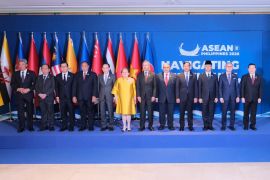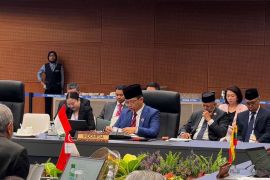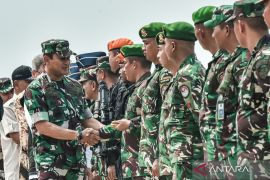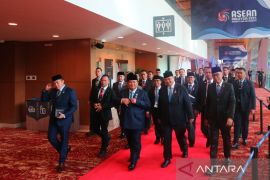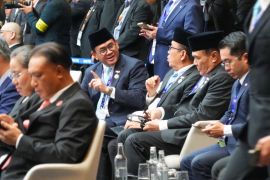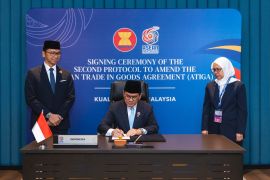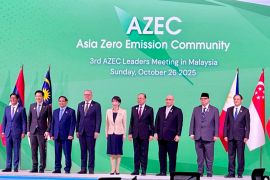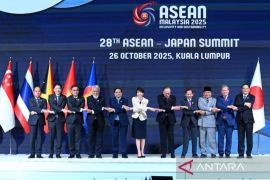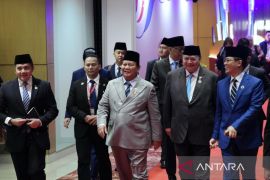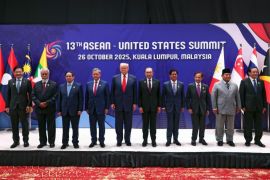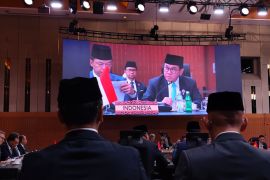During the ASEAN Leaders' Interface Meeting with Representatives of ASEAN-BAC in Vientiane, Laos, on Thursday, he emphasized the role of the ASEAN Net Zero Hub as a platform to help businesses, including MSMEs, transition to net zero emissions.
This initiative is designed to assist business actors in sharing practical solutions and support companies in overcoming supply chain challenges.
"We must move quickly to ensure that ASEAN is ready to transition to a low-carbon economy," said Rasjid, who also serves as the chairperson of the Indonesian Chamber of Commerce and Industry.
He also highlighted the significant role of the ASEAN Alliance on Carbon Markets (AACM) in leading the development of cross-border carbon markets in the region.
AACM has initiated an executive dialogue to identify opportunities and challenges in the carbon market, he added.
"ASEAN must be a major player in the global carbon market, and its benefits must be felt by all member countries," Rasjid said.
He proposed five key steps to encourage economic growth and decarbonization in ASEAN.
These steps include accelerating the development of cross-border carbon markets, harmonizing carbon-related standards across ASEAN, and promoting green investment through free trade agreements.
They also include increasing public-private collaboration to support the energy transition and creating economic incentives to accelerate private sector decarbonization.
Rasjid also advocated for the concept of complementary growth, where each ASEAN country utilizes its respective comparative strengths to produce higher value-added products.
"By complementing each other, ASEAN can strengthen regional competitiveness and enhance our economic position in the global market," he explained.
The meeting between ASEAN leaders and representatives from the Business Advisory Council was considered important for member nations to strengthen regional cooperation and demonstrate their commitment to sustainable and inclusive growth in the future, he said.
With the concrete steps discussed at the meeting, ASEAN is prepared to become a resilient and globally relevant economic region, he added.
A number of ASEAN leaders participated in the interface meeting, including Indonesian Vice President Ma'ruf Amin, Laotian Prime Minister Sonexay Siphandone, Philippine President Ferdinand Romualdez Marcos Jr., Cambodian Prime Minister Samdech Hun Manet, and Vietnamese Prime Minister Pham Minh Chinh.
Related news: ASEAN still pushing dialogue to resolve issues: Marsudi
Related news: Indonesia remains committed to ASEAN amid new administration: FM
Translator: Ahmad Muzdaffar Fauzan, Yashinta Difa
Editor: Anton Santoso
Copyright © ANTARA 2024

